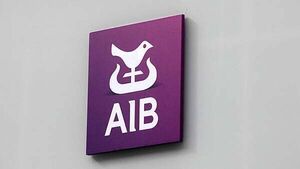Explained: Why is the Government selling its stakes in Irish banks?

Kenneth Fox
With news that Allied Irish Bank (AIB) bought out the Government's stake in the bank for €390 million, speculation is growing that it will do the same with the stake it has in Permanent TSB.
Seeing as the State recouped €20.2 billion from its investment in AIB, selling its stakes in PSTB seems very likely in the near future.
Why does the Government have a stake in Irish banks in the first place, and what is the future for the shares it currently has in banks?
Here is everything you need to know.
Why did the Government buy shares in Irish banks?
With the collapse of the global financial system in 2008, many Irish banks were faced with mounting debts. The Government had to decide whether to let these banks fail or keep them afloat by buying shares.
The Fianna Fáil-led government decided to do the latter and bought stakes in various banks to stem the bleeding.
In February 2009, the government bought €3.5 billion worth of shares in AIB. By 2011, the stakes were at 99.8 per cent, effectively nationalising the bank.
The same number of shares was bought in Bank of Ireland, but it only ever owned a 36 per cent stake in the bank overall. This meant it was the only major Irish bank to avoid being nationalized.

In 2011, the government acquired €4 billion worth of shares in Permanent TSB (PTSB), resulting in a 99.2 per cent ownership in the bank. Due to PSTB's heavy mortgage losses, it would be too difficult to do it through private investment.
When it comes to the now-defunct Anglo-Irish Bank, the State took full ownership of the bank, costing over €29 billion in total bailout funds.
The same went for the Irish Nationwide Building Society (INBS), which they ended up taking a 100 per cent stake in before merging with Anglo-Irish and being wound down in 2011.
So while not all banks weathered the storm, the Government sought to buy shares in these banks, and when the time was right and the economy was on a better footing, they could sell their shares.
What roles does the Government have?
They have no control over the day-to-day operations of the banks, and they are not managed directly by the government. They are governed by published Relationship Framework Agreements.
They said Government policy is not to hold these investments long term and, subject to market conditions, is willing to exit in a manner that generates value for the taxpayer.
The Shareholding and Financial Advisory Division (SFAD) is responsible for:
- Monitoring the overall strategic direction of the banks;
- Developing and executing plans to optimise the value of the State’s investments.
What stake does the Government still have?
Bank of Ireland (BOI)
In September 2022, the Minister for Finance announced that the State had completed the sale of its remaining shareholding in Bank of Ireland, making it the first Irish bank to return to full private ownership.
The government recovered almost €6.7 billion in cash from its €4.7 billion investment in and support for Bank of Ireland over the 2009-2011 period.
Allied Irish Banks (AIB)
AIB agreed with the Minister for Finance, Paschal Donohoe, to cancel the over 271 million warrants held by him for a cash payment to the State of €390 million.
The warrants, which gave the Minister the right to subscribe for ordinary shares in AIB at a specified price, were originally granted in July 2017.
A deed of warrant cancellation between AIB and the Minister was signed on Thursday to give effect to the warrant cancellation.
The warrant cancellation follows the State’s exit from AIB’s share register in June 2025, marking the return of the company to full private ownership.
Permanent TSB (PTSB)
In May 2015, PTSB completed a capital raise of €402 million equity by way of a Placing to new institutional investors and an Open Offer to existing shareholders, along with €125 million Additional Tier 1 debt issuance, in total raising €527 million in new capital.
As part of the capital raise, the Minister was requested by the bank to sell shares to enable PTSB to meet the free float requirements of the main market listings on the Irish Stock Exchange and the London Stock Exchange.
As a result, the Minister sold shares with a value of €97 million through a secondary offering. At the same time, PTSB repurchased the contingent capital notes for which the State received €410.5 million plus accrued interest.
In November 2022, PTSB issued subscription shares to NatWest Group Plc (NatWest) as partial non-cash consideration for its Ulster Bank transaction.
As a result, NatWest held 16.66 per cent of the issued share capital of PTSB, and the State’s shareholding in the bank reduced from 74.9 per cent to 62.4 per cent.
In June 2023, the State sold a further 5 per cent stake in PTSB for €2.025 per share, generating €55.2m for the Exchequer. Following this transaction, the State’s shareholding in PTSB reduced from 62.4 per cent to 57.4 per cent.
Through a combination of fees, dividend income, and disposal proceeds, the State has to date recovered €2.7 billion of the €3.9 billion invested in the bank, with the State’s remaining 57 per cent equity stake valued at €0.5bn at March 2025.
Will the Government sell its stakes in PTSB?
PTSB, in which the State owns a 57 per cent stake, has put itself up for sale.
Shares in the bank jumped 23.4 per cent on Thursday, pushing its market value up to €1.58 billion.
The bank has hired investment bank Goldman Sachs to manage the process, it said in a statement. PTSB chief executive Eamonn Crowley told reporters on a call that he expected the process would conclude in the first half of next year.

“The board of PTSB, with the support of its largest shareholder, the Minister for Finance of Ireland, Paschal Donohoe, has concluded that it is now in the best interests of the bank and its key stakeholders to commence a formal sale process with the intention of identifying a new long-term owner of the bank,” it said.
A sale would complete the return to the private sector of the domestic banks that survived the 2008 financial crisis.
Mr Donohoe said: “With increased investor interest in European banks, this presents the State with the opportunity to exit its last remaining shareholding in an Irish bank after 17 years.”
So it looks quite likely that the Government will sell its remaining stake in PTSB.






